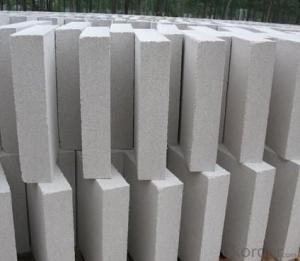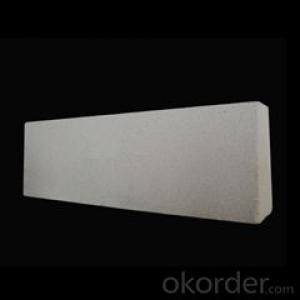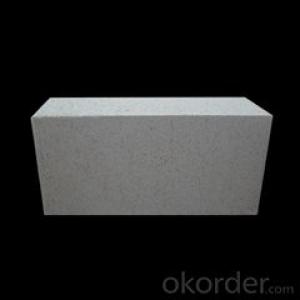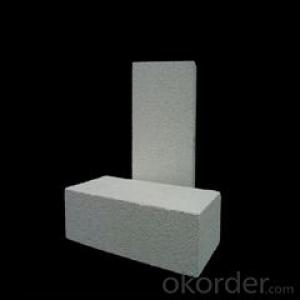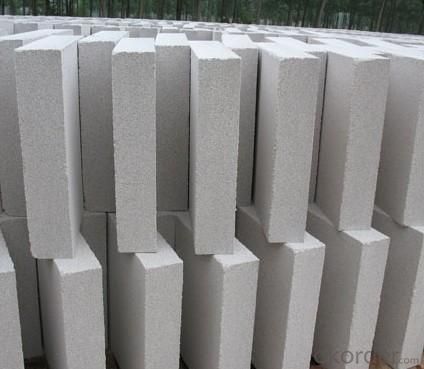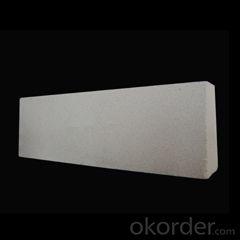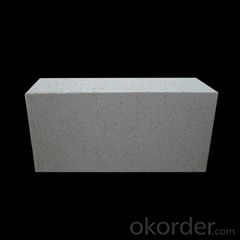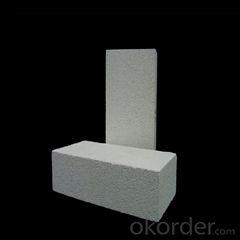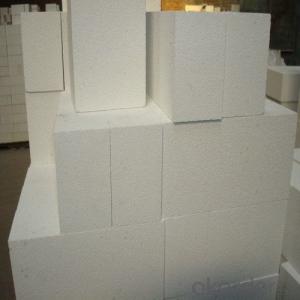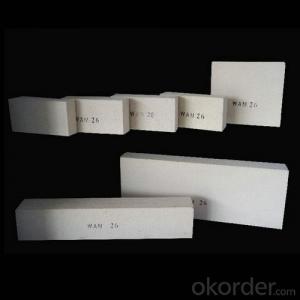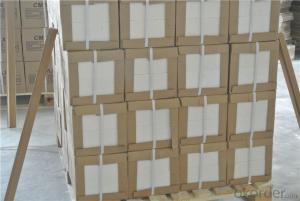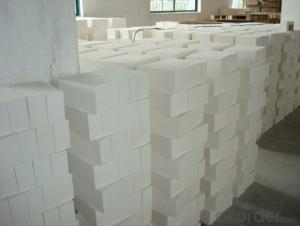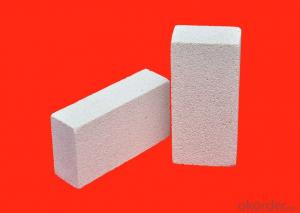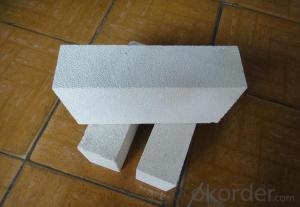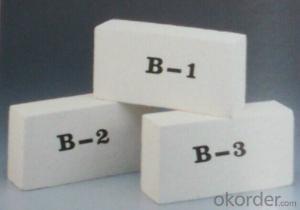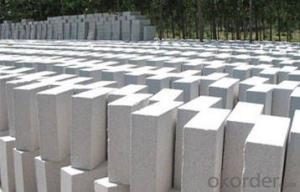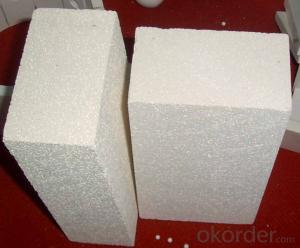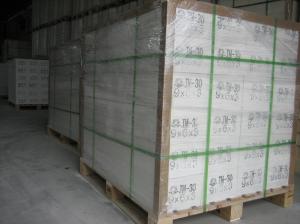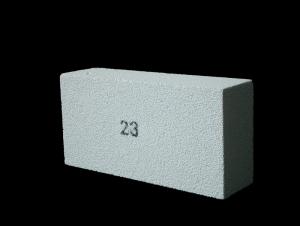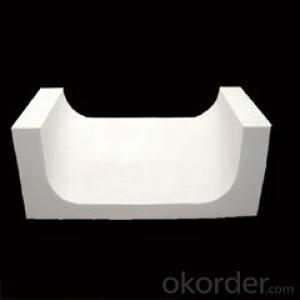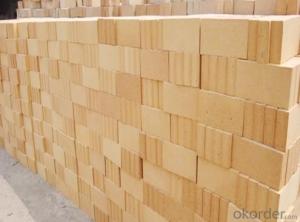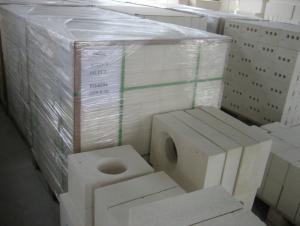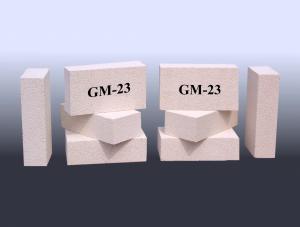Insulating Fire Brick - Refractory Mullite Insulating Refractory Brick JM 94
- Loading Port:
- Shanghai
- Payment Terms:
- TT OR LC
- Min Order Qty:
- 5000 kg
- Supply Capability:
- 10000 kg/month
OKorder Service Pledge
OKorder Financial Service
You Might Also Like
Refractory mullite insulating refractory brick JM 23
Okorder series heat insulation brick
Okorder series thermal insulation brick is an effective, energy saving, low carbon, environmental protection advanced, according to the ASTM standard manufacturing products. Okorder series products are best Li Ning and insulation in all types of industrial furnaces in the metallurgical field, aluminum, petrochemical, electric power and glass ceramic materials. They can be used as part of the working layer of thermal insulation or non - melting. Products have been widely used in the following furnace, achieved satisfactory results.
Application of heat preservation brick
Metallurgical Industry: blast furnace, hot blast furnace, heating furnace, etc..
Petrochemical Industry: ethylene cracking furnace, hydrogen production furnace, primary reformer, heating furnace, etc..
Ceramic industry: roller kiln, kiln, etc..
Glass industry: glass furnace regenerator, etc.
Carbon industry: carbon furnace, etc..
Aluminum electrolysis industry: aluminum reduction cell, etc.
Other industries: tunnel kiln, shuttle kiln, etc..
Advantages of heat insulation brick
Low thermal conductivity: more porosity will bring good thermal insulation effect, energy saving.
High crushing strength: high crushing strength, volume stability.
Low heat storage: small heat storage to absorb more heat, energy-saving effect is obvious.
Gao Chundu: iron, alkali metal impurity content is low.
The precise size: Brick size processing precision, special shape cutting and grinding, accelerate the brickwork.
Insulating brick picture
Common problem solutions
1. What products do you have?
We have all kinds of refractory bricks, refractory casting materials, mortar, cement, ceramic fiber products, etc..
Or you can browse our products to choose what you need.
2. How to control product quality?
With strict quality control system throughout the material selection and production process, we have the quality of refractory materials and ceramic fiber products to meet customer requirements.
From the selection of raw materials, the quality of our control to start. The quality certificate of the raw material is required, each batch of the products are to be tested in the use of the forward line. In the production process, the quality control by the workers, and then each piece of classification, and through the quality supervision and inspection.
3. Can you give me a brief introduction to the application of your product?
My company is mainly engaged in refractories in the steel, cement, glass, ceramics, petrochemical, electric power and other industries.
4. What information do you need if I need you?
In order to select the right products, we will provide us with information, such as the United States, technical data, order quantity, product application, etc..
If you have any questions, please contact us.
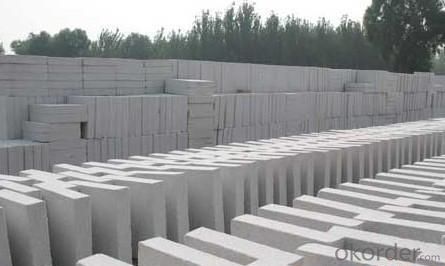
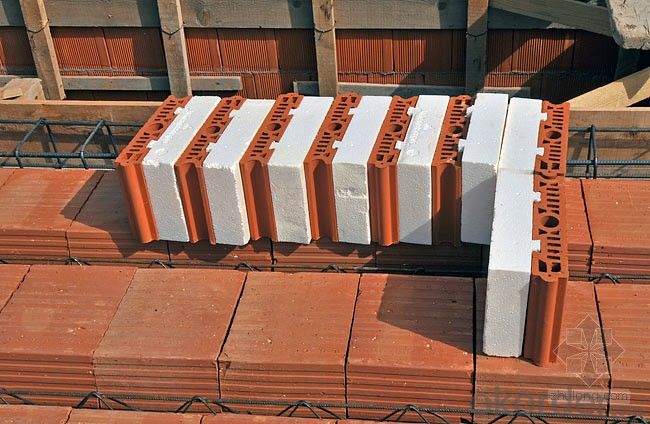
- Q: Are insulating fire bricks suitable for applications requiring low thermal conductivity?
- Yes, insulating fire bricks are suitable for applications requiring low thermal conductivity. These bricks are designed to have excellent insulation properties, allowing them to effectively minimize heat transfer and maintain low thermal conductivity. They are commonly used in industries such as metallurgy, ceramics, and glass manufacturing, where thermal insulation is crucial for efficient and controlled processes.
- Q: Can insulating fire bricks be used in refractory linings for boilers?
- Insulating fire bricks have the potential to be utilized in boiler refractory linings. They possess a specific design that enables them to exhibit low thermal conductivity, rendering them suitable for situations that necessitate heat insulation. Within boiler systems, insulating fire bricks may be employed to construct linings for the combustion chamber's walls, roof, and floor, as well as the flue gas passages. By implementing insulating fire bricks in these regions, the boiler's heat loss can be minimized, subsequently enhancing energy efficiency. Furthermore, insulating fire bricks are characterized by their lightweight nature and ease of installation, making them a convenient option for boiler refractory linings.
- Q: What is the typical density of an insulating fire brick?
- The typical density of an insulating fire brick is around 0.8 to 1.2 grams per cubic centimeter.
- Q: Are insulating fire bricks suitable for use in kilns?
- Indeed, kilns can benefit greatly from the utilization of insulating fire bricks. These bricks have been specifically engineered to endure high temperatures and possess exceptional insulation properties. Crafted from lightweight materials with low thermal conductivity, they possess the ability to efficiently retain heat and minimize heat loss. Consequently, they serve as an ideal lining for kilns, as they aid in the maintenance of consistent and controlled temperatures. This not only enhances energy efficiency but also reduces fuel consumption. Furthermore, insulating fire bricks exhibit remarkable resistance to thermal shock, enabling them to withstand sudden and extreme temperature fluctuations without succumbing to cracks or breakages. All in all, the utilization of insulating fire bricks for kiln linings guarantees reliability, effectiveness, and the elongation of the kiln's lifespan.
- Q: Can insulating fire bricks be used in chimneys and fireplaces?
- Yes, insulating fire bricks can be used in chimneys and fireplaces. These bricks are designed to withstand high temperatures and provide excellent insulation, making them ideal for use in areas where heat is generated, such as chimneys and fireplaces. They help to prevent heat loss and improve the efficiency of the heating system.
- Q: Can insulating fire bricks be used in the construction of boilers?
- Yes, insulating fire bricks can be used in the construction of boilers. These bricks have excellent thermal insulation properties, making them suitable for use in high-temperature applications such as boiler construction. They help to reduce heat loss, improve energy efficiency, and enhance the overall performance of the boiler system.
- Q: Can insulating fire bricks be used for insulation in power plants?
- Yes, insulating fire bricks can be used for insulation in power plants. These bricks are specially designed to withstand high temperatures and provide excellent thermal insulation. They help in reducing heat loss and improving energy efficiency in various industrial applications, including power plants.
- Q: Can insulating fire bricks be used in wastewater treatment plants?
- Yes, insulating fire bricks can be used in wastewater treatment plants. Insulating fire bricks are designed to withstand high temperatures, making them suitable for use in various industrial applications, including wastewater treatment plants. They are commonly used in the construction of kilns, furnaces, and other high-temperature equipment. In wastewater treatment plants, insulating fire bricks can be used in the construction of incinerators, thermal oxidizers, and other systems that require high-temperature insulation. Their properties, such as high thermal resistance, low thermal conductivity, and excellent insulation capabilities, make them ideal for maintaining the desired temperatures in these systems while minimizing heat loss. Additionally, insulating fire bricks are resistant to chemical attacks, which is important in wastewater treatment plants where various chemicals and corrosive substances are present. Overall, the use of insulating fire bricks in wastewater treatment plants can help improve energy efficiency, reduce maintenance costs, and ensure the longevity of high-temperature equipment.
- Q: Can insulating fire bricks be used in the construction of glass slump molds?
- Yes, insulating fire bricks can be used in the construction of glass slump molds. These bricks are designed to withstand high temperatures and provide excellent insulation, making them suitable for use in kilns and other heat-intensive applications like glass slumping. Their insulating properties help to maintain a consistent temperature during the slumping process, ensuring the glass molds are formed correctly.
- Q: Are insulating fire bricks suitable for use in the construction of drying ovens?
- Insulating fire bricks are indeed suitable for use in the construction of drying ovens. Their design aims to minimize thermal conductivity, enabling efficient heat retention within the oven. This particular feature is crucial for drying ovens as it promotes consistent and uniform temperature maintenance throughout the drying process. Moreover, insulating fire bricks possess remarkable resistance to thermal shock, ensuring they can endure rapid temperature changes that may occur during the oven's heating and cooling cycles. This durability guarantees that the bricks will not crack or break under extreme temperature conditions. Additionally, these bricks are lightweight and easy to handle, providing convenience during installation in drying ovens. Overall, their excellent insulation and thermal stability qualities make them a highly appropriate option for constructing drying ovens.
Send your message to us
Insulating Fire Brick - Refractory Mullite Insulating Refractory Brick JM 94
- Loading Port:
- Shanghai
- Payment Terms:
- TT OR LC
- Min Order Qty:
- 5000 kg
- Supply Capability:
- 10000 kg/month
OKorder Service Pledge
OKorder Financial Service
Similar products
Hot products
Hot Searches
Related keywords
